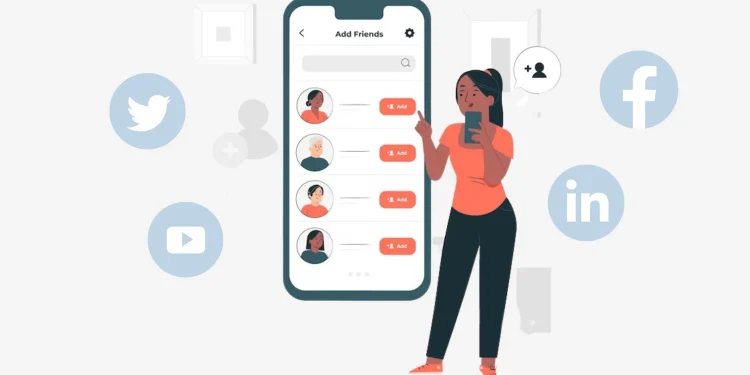As social media continues to grow in influence, it has become an essential part of how we communicate, share, and connect with others. Beyond just keeping up with friends and family, social media is now a rich source of information for businesses, organizations and individuals alike. One of the most common uses of this resource is the social media background check. It provides deeper insights into a person’s character, habits, and lifestyle, often revealing details that wouldn’t be evident through traditional methods.
Whether you’re an employer, landlord, or even someone getting to know a potential business partner, conducting a social media background check can be a valuable step in ensuring you’re making informed decisions.
Why Consider a Social Media Background Check?
Traditional background checks focus on a person’s criminal history, financial standing, or work history, but a social media background check adds another layer of insight. It offers a window into how someone presents themselves online, which can speak volumes about their personality, values and behavior. From a professional standpoint, this can be especially useful when considering new hires. After all, social media often reflects how a person interacts with the world and their peers when they aren’t in formal settings.
For employers, this process can help identify potential red flags that might not be apparent through a resume or interview alone. For example, a candidate might be qualified on paper but might exhibit inappropriate behavior on social platforms. This could include anything from offensive language, discriminatory comments, or content that shows a lack of professionalism. A social media background check helps provide a more well-rounded view of the individual, allowing hiring managers to make informed choices.
What a Social Media Background Check Can Reveal
A social media background checkcan uncover a variety of details, depending on how much information the individual shares online. While privacy settings can limit access to certain profiles or posts, there is often still plenty to gather from public activity. Here are some of the most common findings:
· Inappropriate behavior: Posts containing offensive language, slanderous comments, or unprofessional behavior can be easily identified through social media, which may raise concerns about a person’s suitability for a job or other role.
· Public controversies: If someone frequently engages in heated debates or shares extreme political or social opinions, it could be a red flag, especially in sensitive work environments.
· Inconsistencies: If a person claims certain qualifications or experience in an interview but their social media tells a different story, it could indicate dishonesty. This could include inconsistencies in education or work history.
· Cultural fit: For businesses looking to maintain a certain workplace culture, social media can help determine if a candidate’s personality aligns with the company’s values. Posts showcasing collaborative behavior or community engagement might indicate a great fit, while a series of negative or combative posts could signal potential issues.
The Ethical Approach to Social Media Background Checks
While the use of social media background checks has its benefits, it’s important to approach them ethically. Employers and individuals conducting these checks must respect privacy boundaries, ensuring that they only review publicly available information. Attempting to access private accounts or going beyond what is available without permission is not only unethical but also could lead to legal complications.
Another key aspect of ethical social media background checks is understanding the context behind posts.Social media can sometimes show a skewed version of a person’s life and a single negative post shouldn’t automatically disqualify someone from a role. It’s essential to consider patterns of behavior rather than isolated incidents. Misinterpretations can easily occur without the full context of someone’s personal life, so it’s important to approach findings with caution and fairness.
Personal Benefits of a Social Media Background Check
Conducting a social media background check on oneself is an effective way to ensure that your online presence is sending the right message. For job seekers, entrepreneurs, or anyone looking to make a strong impression, managing your social media profiles is as crucial as having a polished resume. Here are some tips for curating your online presence:
· Review privacy settings: Make sure your privacy settings are up to date, so only the information you’re comfortable sharing is visible to the public. Platforms like Facebook, Instagram, and LinkedIn offer a range of privacy controls that allow you to manage who can see your posts.
· Clean up old content: Go through your old posts, photos and comments to remove anything that might be viewed as inappropriate or unprofessional. Even if you posted something years ago, it could still be taken into account during a social media background check.
· Maintain consistency:Ensure that your online profiles reflect your current personal and professional brand. Inconsistencies between your LinkedIn profile and other platforms could raise unnecessary questions.
The rise of the social media background check reflects the growing importance of online behavior in both personal and professional settings. With so much information available at the click of a button, it’s no wonder that employers, landlords, and individuals are increasingly turning to social media to gain deeper insights into someone’s character. Conducting these checks in an ethical manner and using them as part of a broader assessment can lead to more informed decisions and help ensure the right choices are made in both business and personal relationships.












